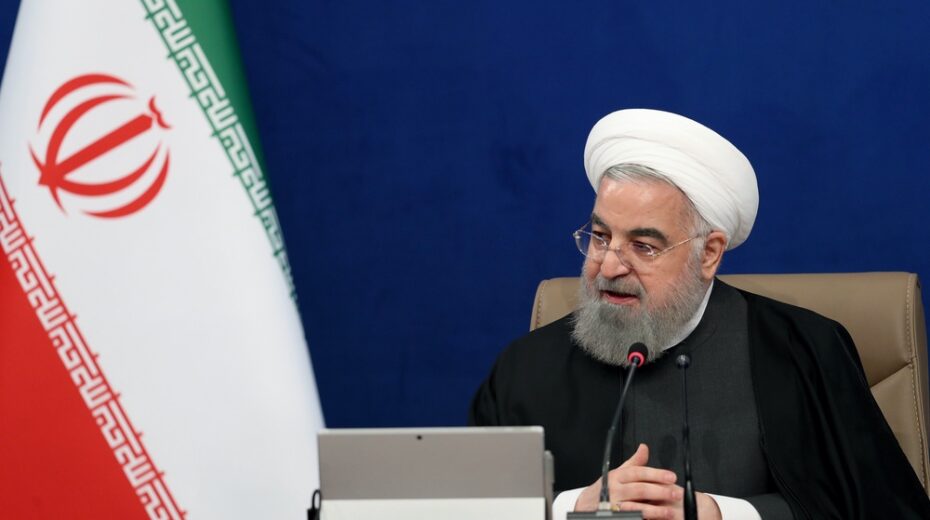On the 20th of January, Joe Biden is expected to enter office as the 46th president of the United States. The new commander in chief will be faced with some very serious challenges at home. The lingering effects of the COVID-19 pandemic and social unrest will undoubtedly be the first on Biden’s list of domestic issues.
But the new administration will also face hurdles abroad, the most substantial of these will be navigating a new Middle East.
The region today is one that bears little resemblance to the one Joe Biden saw as vice-president four years ago. It is an area of the world that has experienced major deviations in power dynamics and new alliances have been formed–many of them due to the policies of the last administration. Of all the paradigm-shifting actions taken by Donald Trump during his term, the single most important was the policy he established on Iran.
Trump’s so-called maximum pressure policy on the Islamic Republic was kicked off in May 2018 when the president pulled the United States out of the Joint Comprehensive Plan of Action (JCPOA), the deal commonly referred to as the ‘Iran nuclear deal’ formulated by the Obama administration along with European allies in 2015.
In the meantime, Biden has made clear his intentions to re-enter some form of deal with the Ayatollahs. Statements by many close to the president-elect indicate that Biden’s intention is to go back to the original JCPOA without any new conditions within the first six months of his term.
This has made a few actors in the region worried about the future of U.S. policy toward Iran.
The decision by Trump to leave the deal was a relief to several countries throughout the Gulf and the broader Middle East. Under the terms of the original deal, Iran received relief from crushing economic sanctions in return for certain temporary commitments on its nuclear development. The moment the deal was signed, it freed the Ayatollahs from the long confinement. More importantly, it enabled the regime to resume its long time commitment to regional aggression. Iran increased its involvement in the Syrian conflict and projected itself further into the country with bases and permanent installations of the Iranian Revolutionary Guard Corps (IRGC). The country has funded rebel factions in Yemen, giving them ballistic missile capabilities that continue to threaten Saudi Arabia and others to this day. Funding for Hezbollah, the Iranian-backed militant group in Lebanon, increased by a factor of four from 2016 over the following two years. Cutting off these expansionist policies by Tehran was the primary outcome of Trump’s decision to leave the nuclear deal.
For its part, Iran has made it clear that it has no intention to continue its commitments to the agreement either, despite most of its other partners remaining in the contract. Even European allies have repeatedly called out the Iranian government for its systemic violations of the deal.
The fact that JCPOA did not prevent any of Iran’s destructive aspirations–coupled with the regime’s lack of commitment to curb its nuclear activities–is the reason why so many Middle East leaders are urging Biden to reconsider. “There must be no return to the previous nuclear agreement. We must stick to an uncompromising policy to ensure that Iran does not develop nuclear weapons,” Netanyahu said in a recent speech in southern Israel. While the Prime Minister did not mention Biden directly, his comments were widely interpreted by observers as a message to the incoming president not to bring the United States back into the agreement.
Additionally, several Arab states, many of whom openly supported Trump’s abandonment of the deal two years ago, have also expressed their concern over a U.S. re-engagement. One of the most striking critiques of Biden’s plan came from Prince Al Faisal Al Saud, former head of Saudi intelligence. “Mr. President-elect, do not repeat the mistakes and shortcomings of the first [Iran] deal,” said the Al Saud. “Any non-comprehensive deal will not achieve lasting peace and security in our region.” In a recent interview, the Prince warned Washington that re-entering a JCPOA-like deal would allow Iran to resume its aggression with a vengeance, including funding its militant proxies throughout the region. “Iranian disruptive regional behavior in Iraq, Syria, Yemen, Lebanon, and Saudi Arabia […] is as much of a threat as is its nuclear program.”
The new administration will inherit a new Middle East, one that has seen tremendous progress on all fronts, from security to diplomacy. When entering office next month, Biden must come to terms with what renewed engagement with Iran would mean for the stability of the region. Any attempt to revivify JCPOA would back peddle on years of progress in curbing Iranian militantism and crash head-on with the collective interests of security and stability of the entire Middle East.















